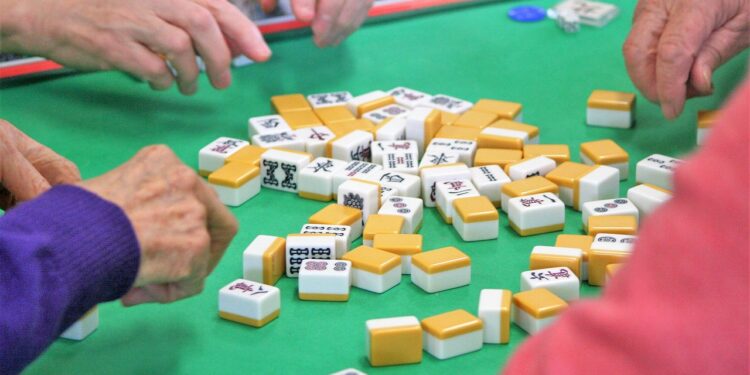People have always been intrigued by mind games where strategy, skill, and concentration prevail. Two games that stand out in this landscape, originating from different parts of the world, are Mahjong and deck-building games.
While Mahjong has roots in the East, often associated with Zen-like mindfulness and subtle strategy, deck-building games hail from the West, focusing on tactical decision-making and resource management. Despite their differences, both genres offer profound mental stimulation and a unique gaming experience.
Mahjong–The zen of tile strategy
Mahjong, the classic tile-based game that originated in China during the Qing dynasty, is a masterclass in patience and strategic foresight. It’s often seen as a symbol of tranquility, with its emphasis on slow, deliberate play. The game can be played both casually and competitively, but its true magic lies in its ability to immerse players in a deep state of focus, resembling a form of meditation.
Playing Mahjong can be a spiritual experience, especially when approached with a mindset that seeks balance, mindfulness, and inner calm. Each tile drawn, each set completed, is not merely a step toward victory but also an opportunity to center oneself and clear the mind. The beauty of Mahjong lies in its simplicity: the game involves aligning patterns and creating specific combinations of tiles, but success comes from recognizing these opportunities amidst the noise of the game.
For those who want to enjoy Mahjong every day, Mahjong365 offers the perfect platform. With access to Mahjong around the clock, you can engage with the game anytime, and that allows you to refine your skills while also finding peace in its rhythm. The game invites players to slow down, think critically, and take in every tile as part of a larger puzzle. It’s a unique mix of strategy and mindfulness that speaks to both the mind and the spirit.
Deck-building–A tactical focus of strategy
Deck-building games, such as Dominion and Slay the Spire, are a sharp contrast to Mahjong in terms of pacing and gameplay style. These games emphasize resource management, card combinations, and rapid decision-making. This requires you to build and refine your decks with careful planning. Unlike Mahjong’s slow-paced contemplation, deck-building focuses on executing specific strategies with precision and adaptability.
At the heart of deck-building games is the challenge of constructing a powerful deck from a limited set of cards, each representing different actions, characters, or abilities. The challenge grows as the game progresses, and the initial deck often needs to be improved to overcome more difficult challenges. Deck-building games will typically encourage you to adapt to evolving situations and create synergies between cards. You’ll probably be forced to think ahead and balance your short-term moves with long-term strategy.
What makes deck-building unique is its constant need for focused attention. Every turn can result in new opportunities or risks, and the pressure to optimize each decision keeps players mentally engaged. The tactical depth of deck-building games appeals to those who enjoy complex problem-solving and quick thinking, making each session a dynamic mental workout.
Common ground
Despite their differences in style, both Mahjong and deck-building games require deep mental focus and strategy. Mahjong, with its slow pace and emphasis on mindfulness, teaches you patience and attentiveness, while deck-building games, with their fast-moving action and ever-changing challenges, foster adaptability and forward thinking. Each game has a distinct approach, but both demand a sharp mind and a reflective, analytical approach.
The beauty of both games lies in their ability to stimulate the brain in different ways. Mahjong brings a meditative quality, challenging players to maintain focus in an environment where things unfold at a slower, more deliberate pace. On the other hand, deck-building games encourage strategic decision-making under pressure, requiring players to consider the consequences of their moves in a constantly shifting environment.
Zen meets tactics
In the end, Mahjong and deck-building games represent two very different approaches to mental engagement, yet both succeed in providing a fulfilling gaming experience.
 Regardless of your preference, both genres provide a rich mental landscape that challenges the mind, sharpens the senses, and fosters a deeper connection with the game world.
Regardless of your preference, both genres provide a rich mental landscape that challenges the mind, sharpens the senses, and fosters a deeper connection with the game world.















